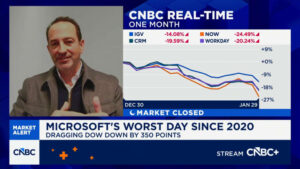After a tough start to the year, analysts at UBS and Bank of America changed their recommendation to ‘buy’ from ‘neutral’ in March with a target price of £5.60 and £5.80 respectively. The upgrade from analysts sparked a rise in the Glencore (LSE:GLEN) share price that had been dropping since late January. Could a possible reversal in fortunes be on the cards for investors?
Glencore is a Swiss miner and commodity trader and one of the world’s largest producers of copper. The metal is expected to rise in price over the next 12 months.
Increasing demand in China as the economy recovers and a tight supply means the price of copper could reach record highs. UBS stated “We remain cautious on the mining sector” while noting that data from China was encouraging in relation to Glencore.
Increasing demand
Copper is a key metal in terms of the transition to net-zero, given its use in renewable energy technologies and electric vehicles. Demand is predicted to double by 2035 according to a report from S&P Global. Glencore stated: “We expect demand to grow exponentially for renewable energy technologies, and the metals and minerals required to build them”.
In February. Glencore announced its full year earnings as $34bn, a rise of 60%. This was largely as a result of high commodity prices.
It is not all plain sailing for Glencore, however, given its exposure to thermal coal as one of Australia’s largest coal producers.
Coal is highly profitable for Glencore. Yet the company has pledged to investors that it will responsibly run down its mines by 2040. Glencore states that it will be a net-zero emissions company by 2050. There will be sustained pressure from campaigners and investors to improve on environmental targets.
Additionally, the price of thermal coal has weakened after surging in 2022. This is a consequence of the war in Ukraine, of course, and the ongoing energy crisis. The company noted that 2023 profits would be depressed because of lower coal prices.
Glencore’s proposed $23bn merger with Teck Resources on 3 April has also been rebuffed. An unsolicited hostile bid proposed that Glencore merge the two businesses and demerge their combined coal businesses. Teck rejected the offer and cited exposure to Glencore’s thermal coal and oil trading businesses as unwanted.
Overall, Glencore has a strong commodity mix mining and trading oil, coal and gas, all of which are in high demand. The energy crisis is ongoing and the continued need for copper as part of the energy transition is clear. Although I don’t hold shares in Glencore, now could be the right point to add them to my energy portfolio.
This post was originally published on Motley Fool







